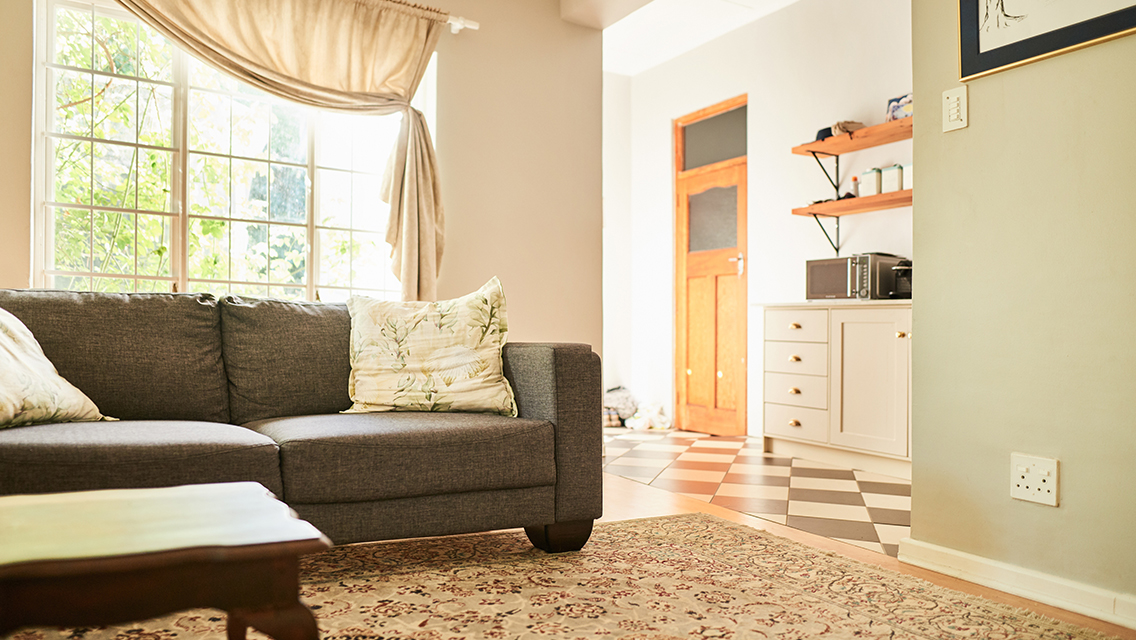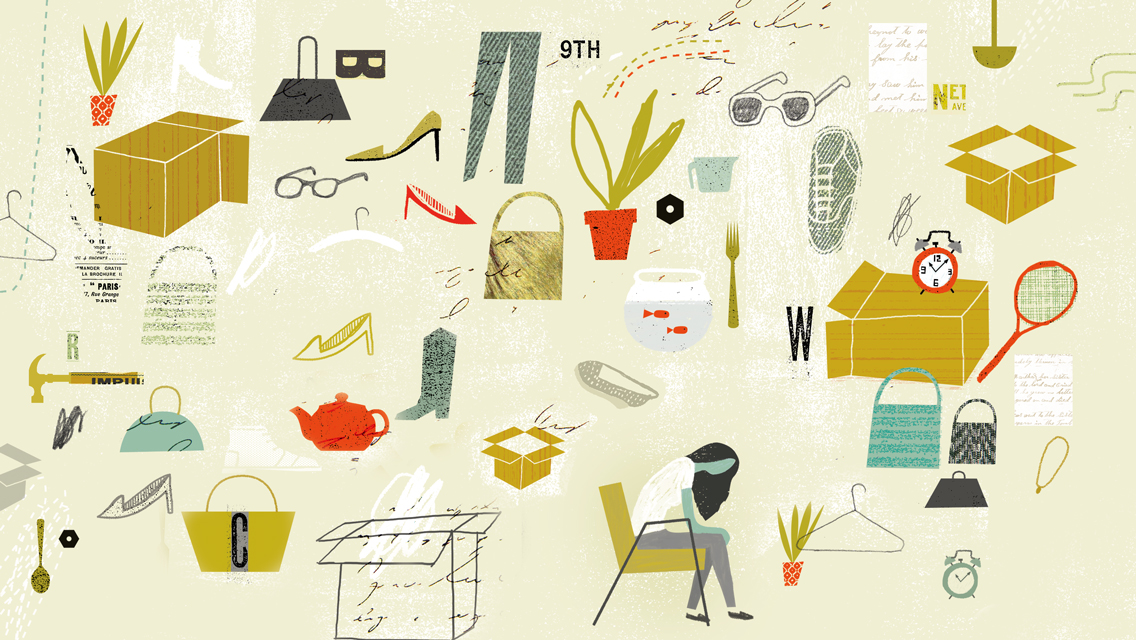The way I see it, yoga and Feng Shui are a lot alike. For example, once people get past the strange postures and nose breathing, most find yoga is simultaneously calming and invigorating. Once people get past the odd spelling (it’s pronounced “fung shway”) and get used to the exotic-looking map (called a bagua), they often find that Feng Shui delivers surprisingly similar results.
Just as yoga draws breath and energy into parts of the body where we’ve been unconsciously holding tension, Feng Shui brings consciousness into physical spaces where we may be holding very similar kinds of blockages. And like all exercise, Feng Shui not only helps to strengthen, revitalize and detoxify the system at hand, its impacts also roll over into many other areas of our lives – often with dramatic and positive results.
Getting Clear
Feng Shui has hit its stride in the United States quite recently, and is now being employed by leading architecture and design firms across the country. But it’s hardly a new trend. The Chinese art of placement has been around Asia for more than 2,000 years.
The ancient practice is based on the principle that everything is made of energy, and that good energy flow (or Chi) can bring balance and vitality to every element of your life. Conversely, blockages in your home’s Chi can be likened to a blocked artery or atrophied muscle, and the results can be just as harmful.
One of the fundamental principles of Feng Shui is that your space reflects your life, that your outer existence mirrors the inner one. Another important related principle is that you can reclaim energy by eliminating excess clutter. It’s very much the same idea as eliminating extra body fat. In fact, if you are currently focusing on losing weight, you might find that extending the effort to your home can be enormously helpful in lightening your load.
Feng Shui teaches us to identify and consciously let go of the objects and items that no longer serve us. Just as ridding ourselves of spare tires and love handles helps us take renewed pleasure in our bodies, clearing out all the stuff that has accumulated in our homes helps remove obstacles to comfortable living. Suddenly our homes are clearer, more open, more beautiful and energizing. Rather than being places we come home to dump stuff and sleep, they become temples for healthy, joyful living.
Life Map
Transforming your home with Feng Shui can be a powerful psychological and spiritual signal to your body that you are committed to being lean and healthy in every sense. Essentially, Feng Shui is a powerful tool for shifting stuck energy in your home and for realizing and integrating positive changes in all the key areas of your life.
According to the bagua, every physical space contains nine areas, and each corresponds to a specific life issue: health, wealth, career and love/partnership, etc. To discover where these areas lie in your own home, stand at your front door and hold the bagua in front of you like a map. To your far left you’ll see your wealth corner, at the far right, your love and partnership area. Your health area lies in the middle, and so on.
This same approach, on a smaller scale, also applies to the individual rooms of your home, as well as to desks and, interestingly, to stove tops (make sure those burners are clean and that you are using them all).
So, what does this conceptual map tell you? At the most basic level it may tell you that a certain area of your life is in disarray, or that it is stuffed with junk and unfinished projects, or that it is dark and empty. It may be that there is a space you rarely use, or don’t even notice.
Take a close look at each area of your home and ask yourself whether it reflects the vision you have for that area of your life. Does it reflect the reality? If it does, and the reality is not what you would like, the next step is to identify the problems or challenges within your home and grasp their significance.
Remember, your space reflects your life, so what is your space saying about you? Are you having a hard time attracting a new love interest after a painful breakup? It might be that hanging onto that painting from your ex isn’t such a good idea. At the very least, you may want to move it out of your partnership area. Are your finances a source of stress? Perhaps a plant or lamp (and not that pile of unpaid bills) should be located on the wealth corner of your desk.
Translating Your Space
Feng Shui can suggest specific adjustments and remedies for virtually every kind of problem, but the first step is identifying the blockages and what they represent. The key is to look not just at the objects in your home but at the larger significance of the objects and what they mean to you.
Feng Shui is an incredibly intricate and sensitive system, and all Feng Shui masters agree that there is no quick and easy “key” to the art. Just as a dictionary of dream symbols can’t begin to do justice to the depth and complexity of a unique individual’s dream, no one-size-fits-all list of Feng Shui dos and don’ts can accurately interpret your home.
That said, it is not unusual for people having zero prior knowledge of Feng Shui to be flabbergasted by the wealth of Feng Shui “coincidences” they’ve unconsciously created in their homes. One client of mine, concerned about the lack of romance in her life, was shocked to discover that most of the images in her house, particularly in her bedroom, were of single, rather lonely looking women. She simply hadn’t noticed. Nor had she noticed, smack in the middle of her partnership area, a huge poster emblazoned with a rather unflattering five-letter word usually reserved for female dogs. She had a good laugh when I pointed it out, and then immediately took it down.
Feng Shui is like a lens that provides a new way of viewing ourselves and our home – of seeing what has been right in front of us all along. So, if you realize that your space doesn’t reflect your highest vision for your self, where do you start? Check out one of the many Feng Shui books for beginners (see “Resources” below), or consider taking a short course (they are increasingly available from community education centers).
Feng Shui isn’t something you will master in a day, but there are many simple things that you can do to make significant improvements in your space. For starters, see if you can pinch an inch or more of spatial fat (clutter). Take your home’s pulse. Look and listen to what your home may be trying to tell you.
Bagua
The orientation of the bagua is determined by a space’s front entry. As you enter your house or a room or face your desk, the wealth area for that space will be at the far left, the knowledge area at near left, the health area in the center, etc.
Taking Your Home’s Pulse
Here are some signals that your home may be in need of a Feng Shui makeover:
- Clutter (on surfaces, it symbolizes blocked vision; on the floor, it indicates depression).
- Messy or overflowing closets and drawers.
- Unused or underused spaces.
- Wilted or dying plants.
- Disrepair: squeaky doors, stuck or broken windows, leaky basement or roof.
- Bad smells (note that you may not be able to smell a bad odor – ask an honest friend).
- Bedside table or light source only on one side of bed.
- Desk facing the wall, leaving your back to the door (creates vulnerability).
- Front doors that are never used.
- Entries that are dark, cramped or that have unwelcoming artwork.
- Objects that are either totally meaningless or that raise painful feelings or memories when we see them.




This Post Has 0 Comments